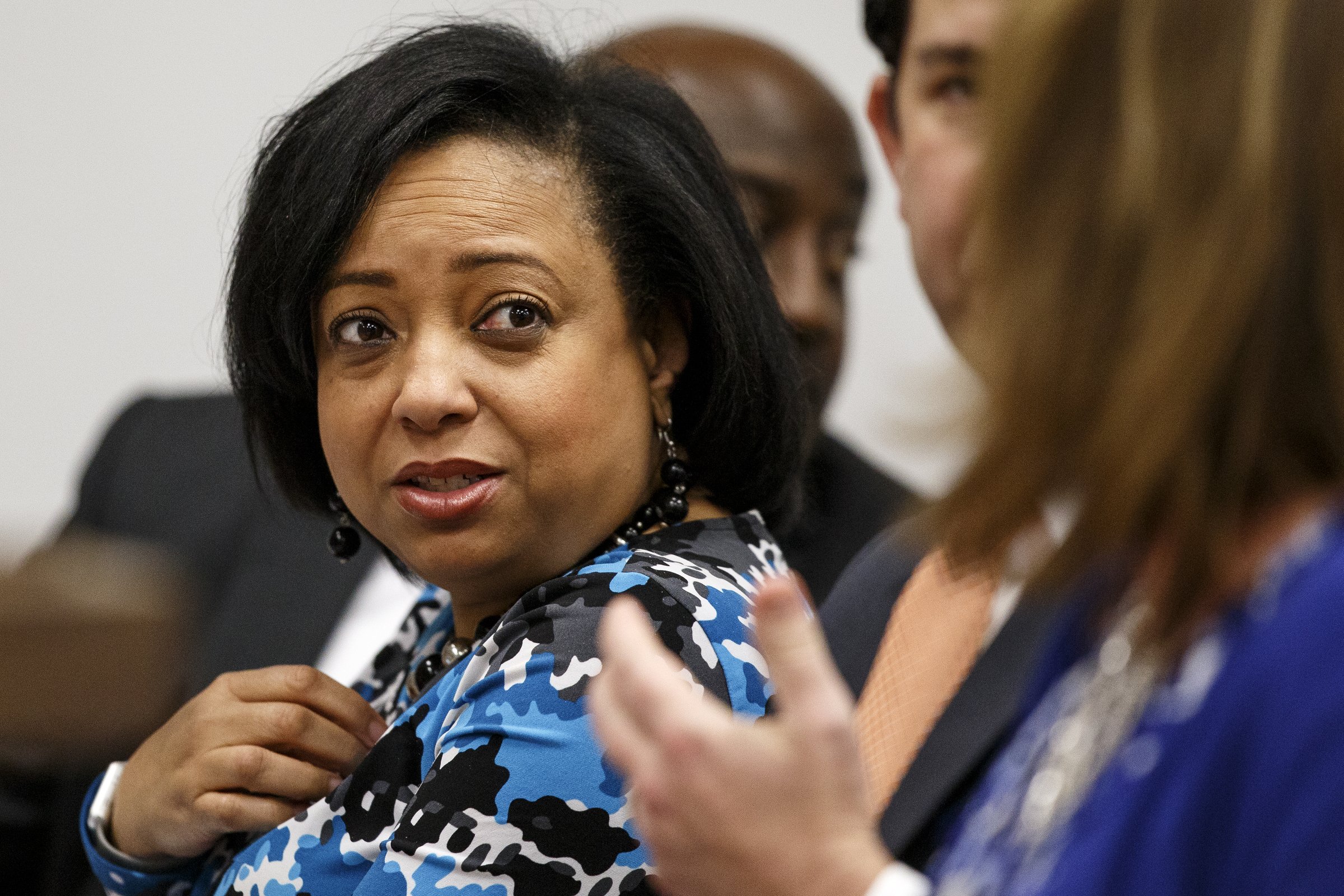Hamilton County Schools is one of 25 school districts recently flagged by the Tennessee Department of Education for disproportionately disciplining students with disabilities, especially black students.
Black students make up 56.5 percent of the suspensions of students with disabilities from district schools in 2017-2018, though black students overall make up only about 44 percent of the student population.
White students with disabilities accounted for 36.5 percent of suspensions the same year, though they make up about 56 percent of the student population.
Hamilton County was flagged for overall discipline of black students with disabilities, in-school suspensions and out-of-school suspensions, according to the state education department.
School leaders don't deny this is a problem, and say they are already enacting ways to remedy it.
'This is one of those things that this is a nationwide issue. It does nobody any good to put their head in the sand and say there's not an issue," said Superintendent Bryan Johnson. "We know it's something that all systems struggle with. I'd like to think we've been a little bit of a leader and in the area of saying 'We're gonna dig in and try to do right for all children.'"
The 25 districts flagged included all four major metropolitan school districts - Hamilton County Schools, Knox County Schools, Metro Nashville Public Schools and Shelby County Schools. Cleveland City Schools also was flagged. Nine districts formally appealed the report, and two were granted their appeals.
Hamilton County Schools did not appeal, though, according to Garfield Adams, exceptional education director for the district.
In a meeting with the Times Free Press, key leaders of the district including Johnson, Adams and the district's chief equity officer acknowledged that there was work to be done.
That includes ensuring there are specific procedures for discipline and consequences for different behaviors that do not vary from school to school, something Johnson said the district has not had before.
Understanding the perspective of students with disabilities or students of color is also vital for teachers, they argue, as well as providing schools with more resources, such as behavior specialists or school counselors.
"Helping our teachers know and understand and learn more about our kids and learn more strategies to build positive relationships, all those things become really important," said Jill Levine, chief of the Opportunity Zone - the district's learning community that encompasses the 12 lowest-performing schools. "It's not as simple as freezing suspensions or banning suspensions. It has to be this whole-child approach for an overall sort of environment for kids within these schools."
School leaders also emphasized that many of the concerns were ones Johnson identified when he took the helm of the district in 2017, and are areas they have been working to address through adding behavior specialists, implementing co-teaching models, increasing the training offered to teachers, and the establishment of both the Opportunity Zone and the equity department at the district level.
"Even before this report, we had taken some proactive steps, even just organizationally by saying 'Look, we've got to continue to do work in these areas,'" Johnson said.
The state is required to conduct a yearly analysis of special populations under the federal Individuals with Disabilities Education Act (IDEA) of 2004, but it does not fine or sanction school districts that are found to be showing "significant disproportionality," according to Chandler Hopper, deputy director of communications for the state education department.
However, districts are required by federal law to redirect 15 percent of their IDEA, or exceptional education, funds to tackling the problem.
Johnson said suspensions overall are trending downward. During the 2015-16 academic year, Hamilton County Schools saw 1,450 suspensions of students with disabilities. The following year, that number dropped to 1,197.
At this point in the current school year, there have been 248 such suspensions.
Most of the students have disabilities such as learning disabilities, language impairments or other health impairments.
Marsha Drake, the district's chief equity officer, also emphasized that there was not a district-wide suspension freeze - something there has been talk about for several months from teachers and schools.
"There has not been a directive sent out. There's not been a freeze on [suspensions], however, we are looking at it differently," she said.
District leaders are working on revising the district's "Code of Acceptable Behavior" that lays out expectations and consequences for certain behaviors.
School leaders believe rolling out a more standard code of behavior will help ensure discipline is doled out fairly.
"Districts need a code that is clear," Johnson said. "To date, it has been extremely ambiguous. There's been a lot of variability, and what that does is creates the appearance of disparity in the community. We're just trying to create some consistency among our school leaders."
Drake also noted that the district is rolling out equity training that includes special education simulations, unconscious bias and cultural competency trainings to administrators and teachers. She said the district hopes to have trained 40 percent of staff by August.
The state conducts this study on an annual basis and analyzes three years of data.
Contact staff writer Meghan Mangrum at mmangrum@timesfreepress.com or 423-757-6592. Follow her on Twitter @memangrum.
DISTRICTS FLAGGED BY THE TENNESSEE DEPARTMENT OF EDUCATION FOR DISCIPLINE OF STUDENTS WITH DISABILITIES
Achievement School DistrictBartlett City SchoolsClarksville-Montgomery County School SystemCleveland City SchoolsCollierville SchoolsFayetteville City SchoolsHamilton County SchoolsHardeman County SchoolsHenderson County School DistrictHumboldt City School DistrictJackson-Madison County School DistrictKnox County SchoolsLauderdale County School DistrictMaury County Public SchoolsMetro Nashville Public SchoolsRobertson County SchoolsRutherford County SchoolsShelby County SchoolsSumner County SchoolsTipton County SchoolsUnion City SchoolsWilliamson County SchoolsWilson County SchoolsSource: Tennessee Department of Education


